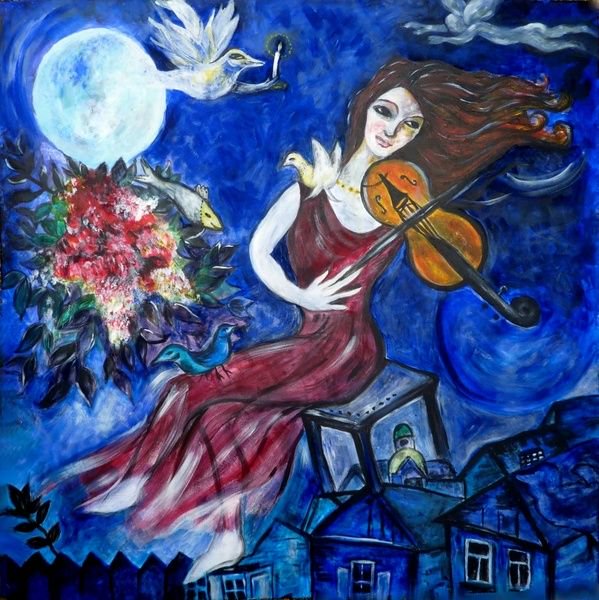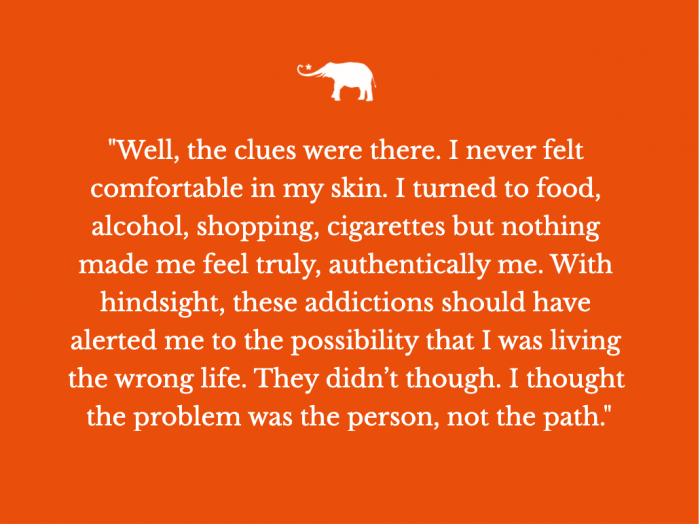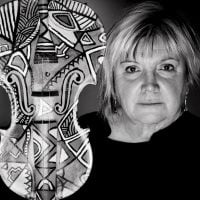Whose path is it anyway?
I silently shout the question at my father, now deceased. Back in the 60s, his dream was that I should be a 20th-century Mozart. When it became apparent that that would never happen, he decided that I should instead become the world’s greatest viola player. Well, that didn’t happen either, but I did live five decades of my life on the path of “classical musician.”
I was good at it too. Sometimes I even loved it. But it wasn’t my path. For me, it wasn’t the path that made me forget time, meals, chores, clothes, as I wrestled to get a phrase just right. For me, that path was words—writing them, reading them, pondering them, loving their capacity to create worlds.
My father could be a forceful man. When I was 17 years old, all set to go to London to study music, I went through a period of intense questioning. Was music really right for me? Or should I go to university, try to become a journalist? Back then, the thought of actually having to speak to people in order to do my job was daunting. Nevertheless, I knew the time flew by when I wrote essays in a way that it never did when I practised. But the weight of expectation was too much for me.
I did what everyone else thought was right for me, and headed off to London to live my father’s path.
How did I know it wasn’t my path?
Well, the clues were there. I never felt comfortable in my skin. I turned to food, alcohol, shopping, cigarettes but nothing made me feel truly, authentically me. With hindsight, these addictions should have alerted me to the possibility that I was living the wrong life. They didn’t though. I thought the problem was the person, not the path.
I thought I was just an inadequate human being who could only relate to others when drinking (too much), hiding behind an impenetrable smokescreen (of sophistication?), stuffing down misery and loneliness with chocolate biscuits.
Still pursuing my father’s path, I became a workaholic. Aside from financial incentives, this was a great way to ensure I never had to spend any time with myself.
I once asked a friend if he regretted having pursued music as a career. His reply, that music had provided him with more peak experiences than any other career would have done, has stayed with me for many years. It’s true.
The great moments were sublime. Unforgettable. But did they make up for all the hours devoted to non-peak experiences? Looking back, probably not.
My father’s dream, I now see, was nothing to do with the quality of experience I would have as a musician. It felt like maybe his dream was more about the fame and the fortune, which, as an orchestral musician, was never going to be mine. Contact soon became strictly birthday and Christmas only. Then, that fizzled out too.
The last time I saw him, he didn’t recognise me. When he figured it out, his only comment was, “You never told me you used to work for The Academy of St. Martin-in-the-Fields.” He’d apparently been Googling, still searching for that elusive fame.
Apart from addictions, my biggest clue that I was living the wrong path came when my orchestra (The London Philharmonic) gave me responsibility for its education and outreach program. I spent hours completely absorbed, writing articles about our projects. Articles that got published, both in the United Kingdom and elsewhere. Still, I didn’t get the message. Even if I had understood, it would have been hard to alter my trajectory. I had a mortgage, a car loan, expensive habits…
I finally left London and came back to Australia to live. Still, it took a cancer diagnosis for me to figure it out. Faced with the possibility of hands that didn’t work, I began writing. I enrolled in a degree in order to qualify for a student allowance. I no longer had a mortgage or a car loan, and my most fulfilling habits cost nothing. My basic needs taken care of, I could afford to write for whoever would publish me. I tried fiction, arts journalism, reviewing, nonfiction. I went on courses, joined a writing group. I tried everything on for size.
I’ve settled on a genre now: I write creative nonfiction and classical music journalism. That is where the words flow best, for now. It may change. I love my writing life—apart from occasional loss of direction or motivation, life is a more or less uninterrupted peak experience.
Right path. Right livelihood.
I can’t help but wonder whether my wrong path in life contributed to the cancer. Perhaps. I’m pretty certain that all those addictions contributed to an ultimate failure of health. And pretty certain that had I taken the right path to begin with, the addictions would have stayed dormant.
Feeling comfortable in one’s skin is, I have come to see, a basic human right. At least, it is for those of us who have a roof over our head and food on our table. Right path, right livelihood, is imperative for both our physical and our mental health.
For years, my favourite poem has been Maya Angelou’s “Caged Bird.” I know why, now. The wrong path is a cage. My body expressed the rage while my mind trailed helplessly along behind.
No more.
It’s my path now.
~












Read 20 comments and reply